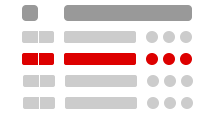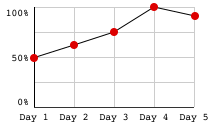Scarcity is the inability to satisfy all our wants. This is due to having unlimited wants but having limited resources.
Choices are made because we can’t have everything that we want. Choices are made because of scarcity.
An incentive is a reward that encourages an action or a penalty that discourages an action.
Economics is a social science that looks at the choices that individuals, businesses, governments, and entire societies make as they have scarcity and incentives that influences these choices.
Two Branches of Economics
Microeconomics is a branch of economics that studies the choices and behaviors of individual and firms, the way choices impact the market, and the influences of governments.
Macroeconomics is the study of performances of national and global economies.
How the Market Works
The goal of the buyers (consumers) are to gain max utility, and their demand for a specific product varies with price.
The goal of the sellers (producers or firms) are to gain max profit, and their supply of a specific product varies with price.
Interaction between buyers and sellers determine the market price. This price determines how much buyers will consume, and how much sellers should produce.
Function of the market
- Exchange of goods between buyers and sellers.
- Define equilibrium price
Equilibrium price happens when goods supplied are equal to what is being demanded. In other words, there are no excess or shortage of the product.






